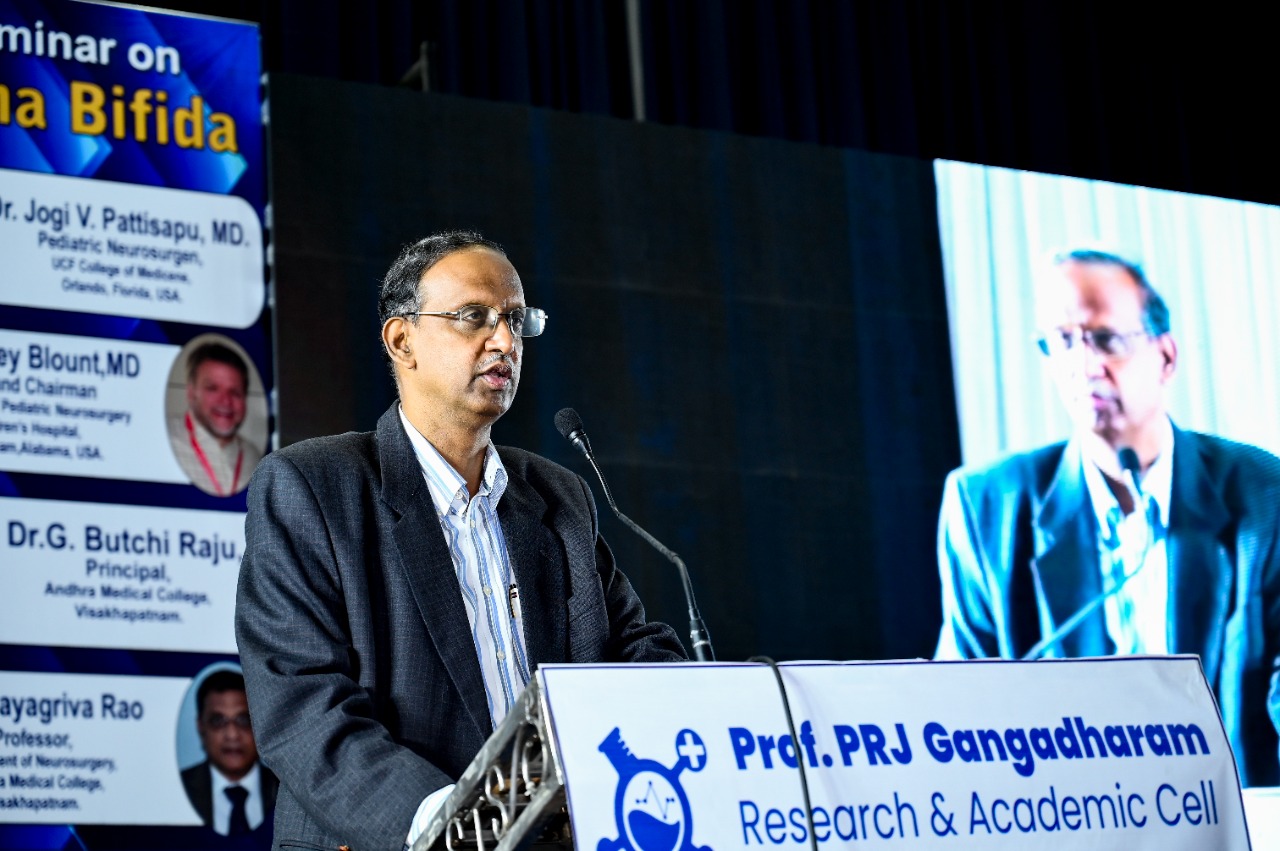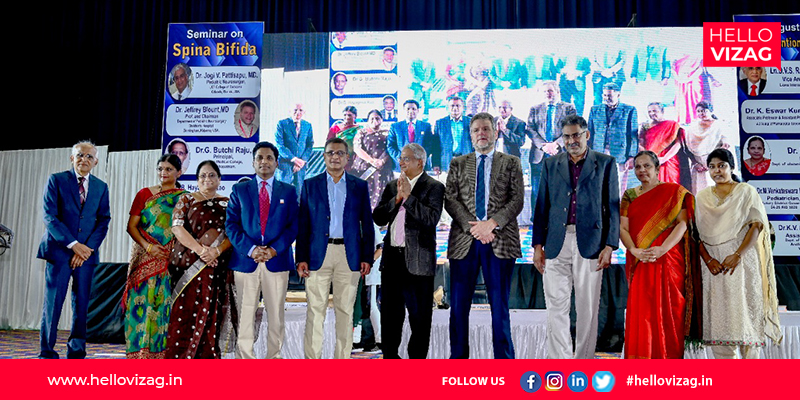prevention of Spina Bifida should be an urgent public health priority for India- Experts opine
Four out of every 1,000 children born in India have spina bifida, the rare condition that did not allow her spinal cord to develop properly in the womb, which causes permanent disability, said experts at a seminar organised by the Department of Neurosurgery-KGH, Andhra Medical College (AMC), in association Andhra University, Rotary Club-Visakhapatnam and Lions International here on Wednesday at AU Convention Hall.
Delivering a keynote address at the seminar Dr Jogi V Pattisapu, Paediatric neurosurgeon, UCF College of Medicine, Orlando, Florida USA said children born with spina bifida suffer from poor quality of life, economic burden, social stigma, lifelong impairment and diminished productivity. But advances in neurosurgery, genitourinary surgery, gastroenterology, and physical medicine and rehabilitation have led to marked increases in survival. Seventy-five per cent to 85% of individuals with spina bifida now survive into adulthood.
Participating as chief guest for the seminar Dr Jeffery Blount, MD, Prof. & Chairman, Department of Paediatric Neurosurgery, Children’s Hospital, Birmingham, USA said Spina Bifida is a serious birth defect that affects the human nervous system for life. Babies are born with an open blister-like abnormality on their back associated with paralysis of the legs and problems with bladder/bowel control. Other body systems are often affected including the brain, kidneys, bladder and leg joints. Most children require multiple surgeries across their lives - but none are curative. Spina Bifida children typically have moderate to severe degrees of permanent physical disability, and sometimes intellectual limitations.
Up to 90% of Spina Bifida can be prevented if women of childbearing age receive 400 micrograms of folic acid daily in their diet. Over 30 years of solid medical evidence has proven that folic acid fortification of food is effective in markedly reducing SB (and is quite safe and cost-effective). About 65 countries have passed laws mandating folic acid fortification and each has seen marked reductions to around 8 SB births/10,000 live births.
Unfortunately, India has not yet instituted a mandatory fortification program, and has a rate of 75 births per 10,000 (almost 10 times the rate of other nations)! Salt is a very promising vehicle for getting folic acid into the diet and studies at Andhra Medical College are leading the world in this effort.
A resolution mandating folic acid fortification was just introduced at the World Health Assembly meeting in early 2022. Passage of this bill would do much to improve fortification around the world. India should pass legislation to start fortifying grains, rice and salt with folic acid and should support the WHA resolution. This simple act would reduce 30-40% of the world’s Spina Bifida burden!
Dr. MV Vijay Sekhar HoD, Department of Neurosurgery, Kakinada said KGH receives 2 to 3 Spina Bifida cases every month. He commended the Prof. PRJ Gangadharam Research Academic Cell in the department of neurosurgery for delivering education and advocating folic Acid fortification by delivering fortified salt to village residents in rural areas in Visakhapatnam to prevent Spina Bifida.
Participating in the panel discussion about the much-needed awareness of Spina Bifida Dr M Venketeswar Rao, Paediatrician and Rotary District Governor said our endeavour is always to spread the awareness through mobilisation of resources and education by involving 5000 members through 80 clubs in urban and rural regions including tribal people in remote areas. While Ln. DVS Raju, Vice Area Leader, Lions International said they will propose to pass a resolution to fight against Spina Bifida and very soon they will submit a representation to the district collector about the need for government intervention in this regard.
Medical Experts said “prevention of Spina Bifida should be an urgent public health priority for India, and the central and state governments need to take this up on a war footing and like the polio campaign initiate a campaign for awareness regarding prevention of Spina bifida. They also underscored the dire need for better allocation of resources as the incidence of common birth defects in India is staggeringly high and the country has a long way to go in this regard.
The Principle of Andhra Medical College Dr G Butchi Raju said that birth defects such as Spina Bifida are 100 per cent preventable. Hence raising awareness and educating people on this topic is key, whether that is via doctors’ education or seminars such as this. Dr B Hayagriva Rao, Professor, Department of Neurosurgery and Dr KV Phani Madhavi Assistant Professor, Department of Community Medicine of AMC also spoke on the subject.





















